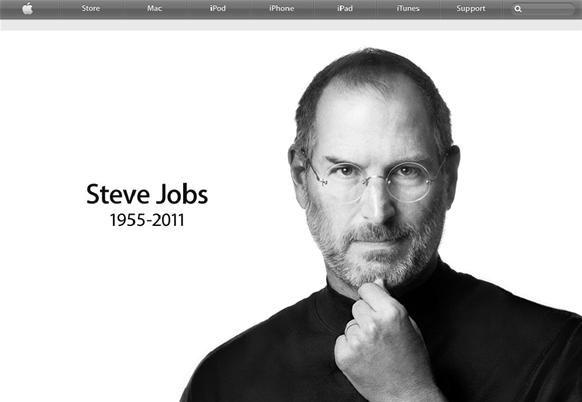He’s gone, and the media are struggling to find a way of encapsulating his remarkable life. Tech Review had the great idea of going back to this interview he gave to Playboy in 1985. Excerpt:
Playboy: We survived 1984, and computers did not take over the world, though some people might find that hard to believe. If there’s any one individual who can be either blamed or praised for the proliferation of computers, you, the 29-year-old father of the computer revolution, are the prime contender. It has also made you wealthy beyond dreams‐‑your stock was worth almost a half billion dollars at one point, wasn’t it?
Steven Jobs: I actually lost $250,000,000 in one year when the stock went down. [Laughs]
Playboy: You can laugh about it?
Jobs: I’m not going to let it ruin my life. Isn’t it kind of funny? You know, my main reaction to this money thing is that it’s humorous, all the attention to it, because it’s hardly the most insightful or valuable thing that’s happened to me in the past ten years. But it makes me feel old, sometimes, when I speak at a campus and I find that what students are most in awe of is the fact that I’m a millionaire. When I went to school, it was right after the Sixties and before this general wave of practical purposefulness had set in. Now students aren’t even thinking in idealistic terms, or at least nowhere near as much. They certainly are not letting any of the philosophical issues of the day take up too much of their time as they study their business majors. The idealistic wind of the Sixties was still at our backs, though, and most of the people I know who are my age have that ingrained in them forever.
Playboy: It’s interesting that the computer field has made millionaires of‐‑
Jobs: Young maniacs, I know.
Playboy: We were going to say guys like you and Steve Wozniak, working out of a garage only ten years ago. Just what is this revolution you two seem to have started?
Jobs: We’re living in the wake of the petrochemical revolution of 100 years ago. The petrochemical revolution gave us free energy‐‑free mechanical energy, in this case. It changed the texture of society in most ways. This revolution, the information revolution, is a revolution of free energy as well, but of another kind: free intellectual energy. It’s very crude today, yet our Macintosh computer takes less power than a 100-watt light bulb to run and it can save you hours a day. What will it be able to do ten or 20 years from now, or 50 years from now? This revolution will dwarf the petrochemical revolution.
That last sentence is interesting given what we now know: that he made Apple briefly more valuable than Exxon.
It’s a great interview, worth reading in full.

